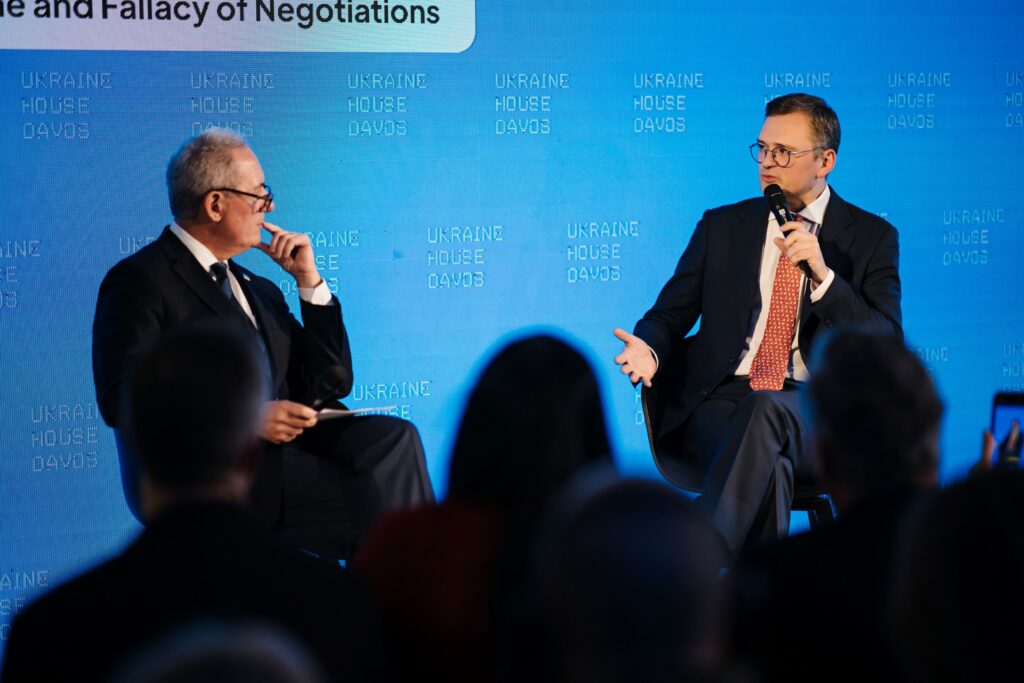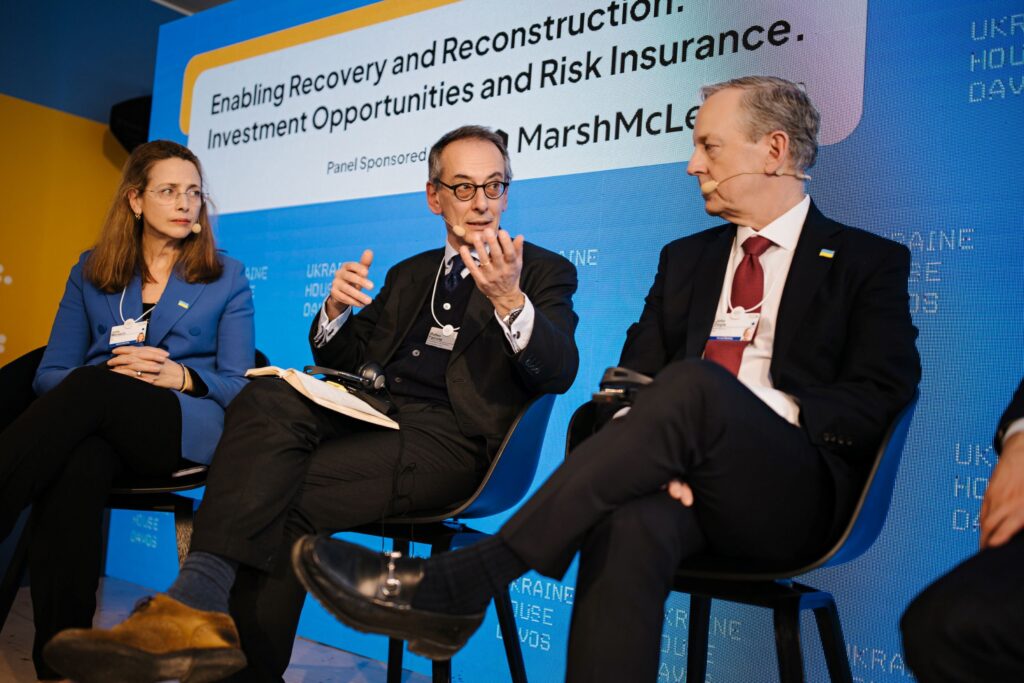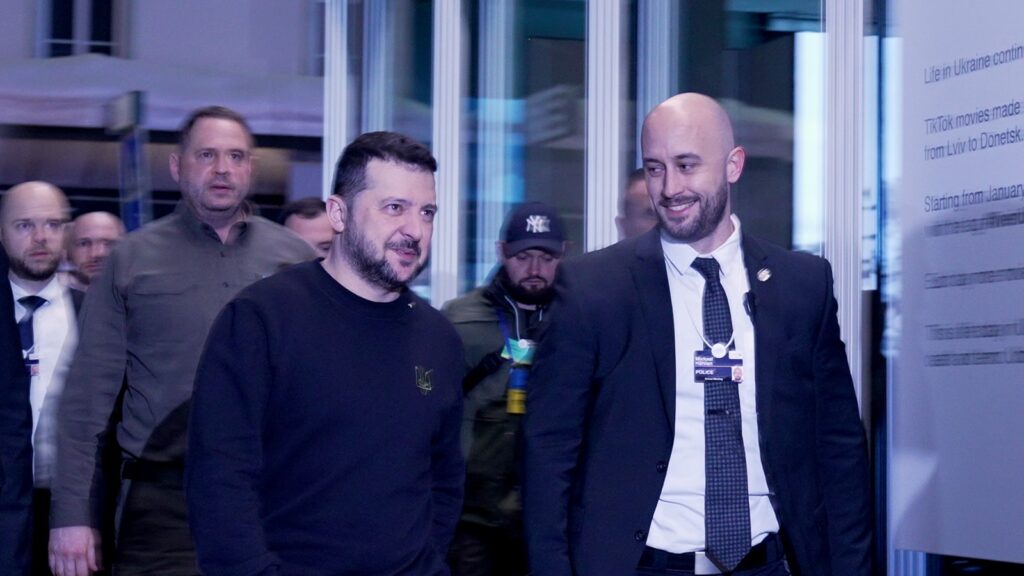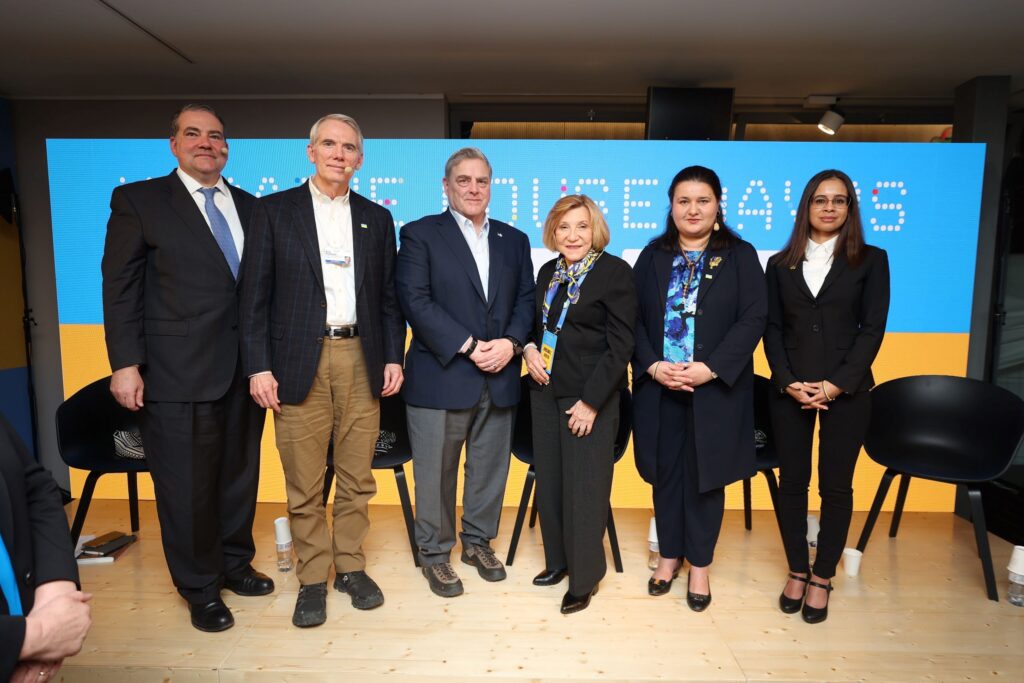January 17, 2024, Davos, Switzerland. Ukraine House today focused on how the country’s future was being transformed and how it could be funded.
Turning to the second issue first, and in a marathon day of five intensive panels, we heard from the most eagerly awaited panel of the week so far in terms of its sheer topicality – ‘Give Russia’s Frozen Assets to Ukraine Now’.
Speakers were Rostyslav Shurma, Deputy Head of the Office of the President of Ukraine, Bill Browder, CEO, Hermitage Capital, Timothy Ash Senior Sovereign Strategist, RBC Bluebay Asset Management and Yuliya Ziskina, Senior Legal Fellow at Razom, moderated by Chatham House’s Director and Chief Executive Bronwen Maddox.
Speaking to a standing room-only audience, Shurma declared that this was all about political will and that no new legal framework would be needed here. Browder argued that using Russia’s frozen assets to fund Ukraine’s defense and reconstruction efforts was the “right thing to do morally, politically and financially” but conceded he “didn’t think it can be done unless everyone does it together”.
Ziskina set out the key legal arguments, dispelling doubts around the legality of unlocking these funds, pointing out that Russia could not have it both ways – “aggressors can’t violate every tenet of the rule of law and then use it to claim protection for their property”.
The House was blessed by an expert audience for this panel who amongst other matters noted that there was fairly recent precedent for demanding such compensation – in the 1990s, Iraq had to pay twice Kuwait’s GDP in reparations for invading the country.
The morning panels focused on technological innovation on and off the battlefield.
At ‘Showcasing Ukraine’s Digital Transformation Vision – Diia, Mriia & Win-Win’, we were honored to hear from both the Minister of Digital Transformation of Ukraine Mykhailo Fedorov and Deputy Minister of Digital Transformation of Ukraine Valeriya Ionan about the extraordinary success of the super app Diia and its use by everyday citizens across the country.
In a dynamic presentation, Deputy Minister Ionan showed us how the digital tool had both been embraced by citizens and proved a lifeline for them at this time, turning Ukraine into the first truly digital state and a “European digital transformation tiger”.
Minister Fedorov was emphatic in declaring his Ministry the “Ministry of the Future” and set out the scope of the government’s digital vision for this year, citing amongst other plans a new platform, Mriia, launching in April and targeted at making learning better for students, teachers and parents.
The third panelist, Director General, Swiss Agency for Development and Cooperation Patricia Danzi neatly summed up the incredible ambition being showcased at the House here, praising Ukraine House for the “fresh wind of thinking it had brought to Davos” and Ukraine for “showing the world what digital transformation can do”.
This was swiftly followed by a super-panel of six esteemed speakers looking at Ukraine’s place as a ‘Government of the Future’, moderated by Kumo AI’s Vice President Mark Boris Andrijanic, which as well as Deputy Minister Valeriya Ionan included Guy Diedrich, Global Innovation Officer Cisco, Moldova’s Deputy Prime Minister Dumitru Alaiba, Victor Liakh, President East Europe Foundation, Philip Meissner, Founder and Director of the European Center for Digital Competitiveness and Marta Poslad, Google’s Director CEE and Transatlantic Public Policy.
The speakers praised the ability of Ukraine to transform in the hardest possible circumstances and that its technologies were exported and used by countries across Europe.
We then turned our attention to military technology with insight from Minister of Strategic Industries Alexander Kamyshin on ‘Ukraine’s Bold Vision of Becoming the Military Arsenal of the Free World’. He was interviewed by Foreign Affairs Editor Daniel Kurtz-Phelan.
Minister Kamyshin explained how Ukraine was “rebuilding ourselves as the arsenal of the free world”, praised its engineers as the source of much of this innovation and pointed out that the country “was making a miracle in Defence Tech and I’m sure that Western countries would be eager to learn those lessons”.
We closed for the day with a candid discussion between Ukraine’s top diplomat the Minister for Foreign Affairs of Ukraine Dmytro Kuleba and Ambassador Michael Froman, President Council on Foreign Relations.
In a wide ranging interview Minister Kuleba expressed confidence that the US would not derail Ukraine’s strategy whatever the outcome of its elections, called for a global “completely integrated defense plan” for Ukraine and argued that it was “never too early to talk about reconstruction”.
Stay tuned tomorrow for our final day of panels!
Ukraine House Davos is organized by Western NIS Enterprise Fund, Victor Pinchuk Foundation and Horizon Capital, and led by Executive Director, Ulyana Khromyak.
The Ukraine House Davos Organizing Committee is comprised of: Jaroslawa Johnson, President and CEO, Western NIS Enterprise Fund; Svitlana Grytsenko, Member of the Board, Victor Pinchuk Foundation; and Lenna Koszarny, Founding Partner and CEO, Horizon Capital.
Please visit our website to register your attendance and to discover more:




